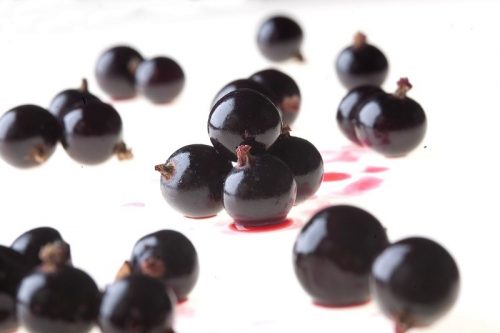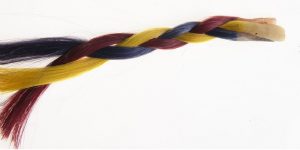Researchers launch spin-out company with hair dye technology from blackcurrants

Researchers from the University of Leeds are set to launch a spin-out company after creating a natural hair dye based on the blackcurrant waste from the production of Ribena.
The researchers are commercialising their patented technology through a University of Leeds spin-out company, Keracol Limited, under the brand Dr Craft, with the blackcurrant-based dyes expected to hit the shelves this summer.
The global hair coloration industry is worth more than $10bn a year. The researchers – colour chemist Dr Richard Blackburn and organic chemist Professor Chris Rayner – worked together to identify naturally-occurring alternatives to commonly used synthetic hair dyes, as well as a sustainable process to produce them.
The duo say that some of the ingredients found in commonly-used synthetic hair dyes, derived from petrochemicals, are known irritants and can trigger allergic reactions.
Dr Blackburn, who heads the sustainable materials research group in the school of design, said: “Because of issues and concerns around conventional dyes, we wanted to develop biodegradable alternatives that minimise potential risks to health and offer consumers a different option.”
Professor Rayner, from Leeds’ School of Chemistry, said: “We’ve made it possible to have great hair colour, and to get it from nature in the most sustainable way possible.”
“Anthocyanins are pigments that provide colour to most berries, flowers, and many other fruits and vegetables,” Dr Blackburn added. “They are non-toxic, water-soluble and responsible for pink, red, purple, violet, and blue colours and are widely used as natural food colorants all over the world.
“We knew they bound strongly with proteins – hair is a protein – so we thought if we could find an appropriate source of these natural colours, we might be able to dye hair.”

Professor Rayner said: “After being pressed, the skins remain as a waste product. They have very high concentrations of anthocyanins, and represent a sustainable supply of raw material because of how much blackcurrant cordial we drink.”
They developed a patented hair dyeing technology that provides intense reds, purples and blues on hair that, when combined with a natural yellow, could provide a wide range of colours which were stable for at least 12 washes.
“We’ve also just made the first natural purple shampoo,” Dr Blackburn added. “The blackcurrant extract is used in our Natural Purple Berry Brightening Serum to counteract brassy tones in blonde and grey hair. The anthocyanins work just as well as the synthetic dyes they are replacing.”
Keracol has previously harnessed nature’s chemistry with a sustainable skincare range made using the waste skins from the production of Marks & Spencer wines.
This latest research was funded by the Department for Environment, Food & Rural Affairs, and Innovate UK, the UK’s innovation agency.
Neither Ribena nor its parent company, the Suntory Group, were involved in this research, although the blackcurrant waste used originated from its production.








